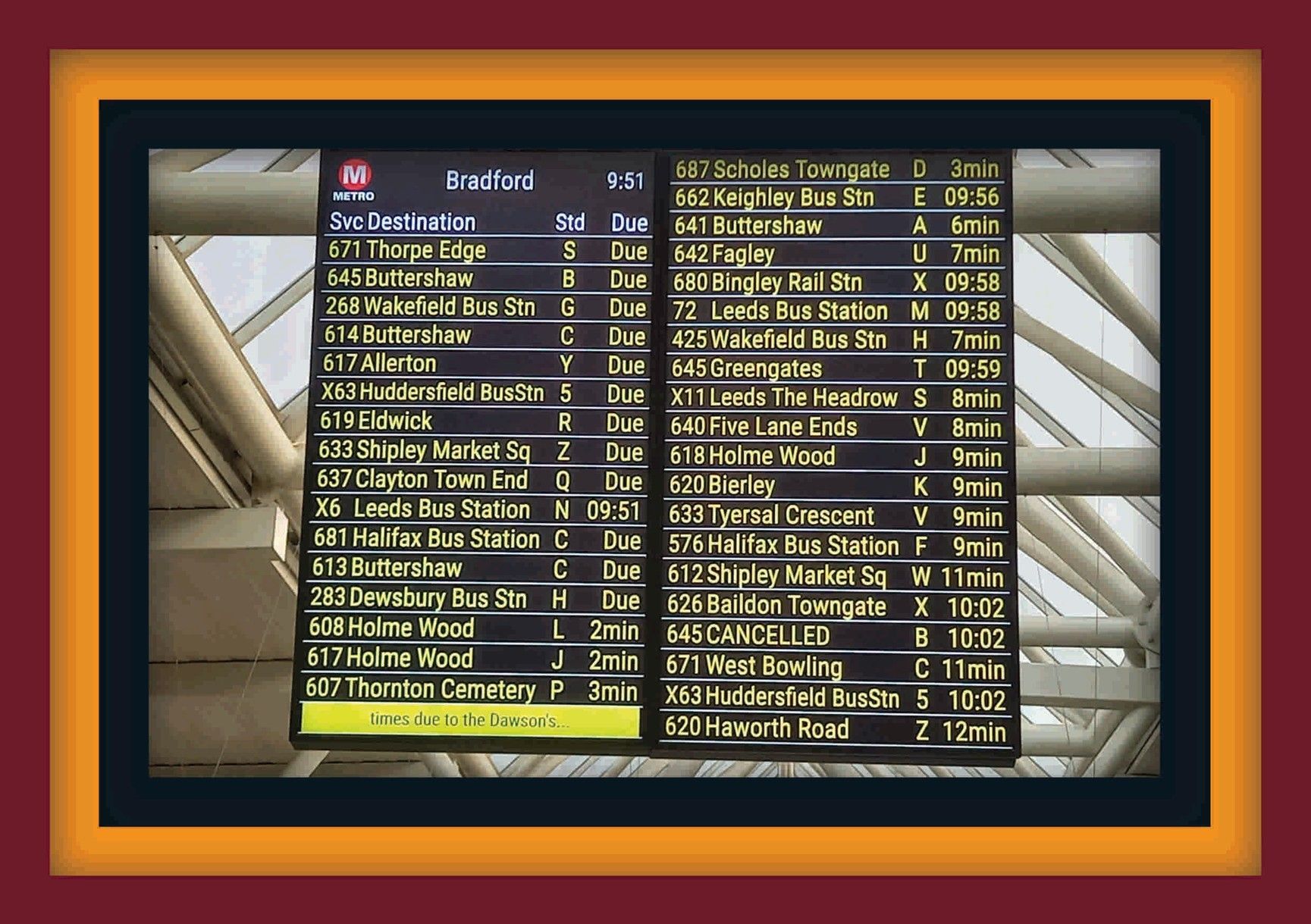What Happens to the Bill after the General election? Part 2
It’s clear that after the general election, whichever political party wins will have it’s own take on the Bill but what is unclear is how exactly it will change if at all.
It is important however to know what the Bill looks like as it is, and the Football Supporters Association (FSA) staff and volunteers have gone through it with a fine toothcomb to bring out any weaknesses and at the same time submit amendments for improvement.
The FSA have 11 amendments, citing clarity on the objectives of the Bill in view of the FSA’s national policy commitments in promoting fans’ interests.
We would like to highlight Clause 55 (revenue distribution), Clause 56 (backstop powers) and Schedule 4 (fan engagement) as key proposal in context to the national perspective.
Clause 8. The Independent Football Regulator’s (IFR) regulatory principles
This lists those with whom IFR is required to cooperate and engage with. We think it is important that it should be amended by adding “supporters and supporters’ organisations” alongside other football stakeholders such as clubs, owners and competition organisers.
Clause 10. State of the Game report
The bill says the IFR must publish a State of the Game report including an overview of the main issues that the IFR considers to be affecting English football and whether any of those features “risks jeopardising” its main objectives (which are protecting the financial sustainability of individual clubs and the resilience of the game, while safeguarding traditional features which matter to supporters and communities).
The legislation says the first report is to be published within three years, but we feel that is too long and urge that the first report should be published within a year. We also feel its responsibility should include fan engagement across the game.
Clauses 12. Guidance published by the IFR and 13. Guidance published by the Secretary of State
The IFR is tasked with consulting “such persons as the IFR considers appropriate before publishing” its guidance. We fully expect that the IFR and Secretary of State guidance will include the FSA on the list of those to be consulted but appreciate any supportive messages to MPs from members on this subject.
Clause 37. Matters relevant to determinations
Clause 37(2) says that in making a decision on a new or current owner “the IFR must ... have regard to the foreign and trade policy objectives” of the Government. It’s a debatable point but this could give rise to concerns about the breach of UEFA and FIFA statutes so it would be preferable to replace the word “must” in 37(2) with “may.”
Clause 45. Duty not to operate a team in relation to a prohibited competition
This prevents regulated clubs from taking part in prohibited competitions - it is the clause that kills the European Super League in relation to domestic club participation.
However, there is no explicit requirement for clubs to consult fans about a proposal to play in a potentially prohibited competition - we believe that clubs should have to consult their fans as it might give them pause for thought before releasing madcap plans to the world. The IFR would be required to consult fans if new competition ideas were proposed. Clubs should too.
The bill doesn’t specify that IFR’s powers are limited to “new” competitions either, so existing competitions may fall under its remit. Therefore alterations to any competition which contravene 45(5v) - “harms, or would harm, the heritage of English football” - could lead to it being specified by IFR. This has relevance in relation to recent FA Cup replay debates.
Clause 46. Duty not to dispose etc of home ground without approval
At present there is no mention of a requirement for IFR to consult any other parties such as supporters, local stakeholders, competition organisers, etc. about a proposed sale of a ground. There should be.
Numerous grounds are already in separate ownership from the clubs who play on them which leaves those clubs facing potential forms of jeopardy, in the form of rent rises or cessation of football and redevelopment. We know that extending the Bill to such grounds would be problematic but feel some steps should be taken to address this.
Clause 48. Duty not to relocate without approval
There are no explicit requirements for the club or IFR to consult competition organisers, supporters or anyone else about such proposals. Such a requirement should be added.
Clause 55. Distribution of revenue
Possible direct payments - There is a concern that a competition organiser could seek to evade the revenue distribution provisions by arranging for clubs to receive the TV money directly (e.g. via a Netflix model whereby subscribers choose their club who receive that fee). That revenue is currently within scope of the IFR if it is “received by the competition organiser.” Adding words to include monies received directly by clubs would solve the “Netflix” problem.
Parachute payments - These are also excluded from being within the scope of the regulator’s so-called “backstop powers” on revenue distribution. Given the huge financial problems they cause we don ’t see any justification for their exclusion, which should be deleted. The exclusion of parachute payments would cement the current grotesque inequalities in revenue distribution and undermine IFR’s ability to deliver its systemic financial resilience objective.
Clause 56. Applications for resolution process to be triggered
This refers to the starting of the so-called “backstop” powers. It should be amended to allow IFR itself to trigger the resolution process when competition organisers fail to agree or fail to move the matter towards resolution. It should also be possible for the IFR to trigger the process if a settlement is agreed which compromises the IFR’s systemic financial sustainability objective.
Schedule 4 - Threshold requirements (Fan Engagement)
Fan engagement is the “core business” of the FSA. Given the fundamental requirement in the bill that “English football is sustainable if it continues to serve the interests of fans of regulated clubs” we are particularly keen to ensure that the fan engagement regime established under the bill is robust. It should be appropriate at all regulated clubs, according to their circumstances, based on democratic principles and regulated not solely on the basis of the appearance of arrangements “on paper” but with regard to the conduct of those involved and the outcomes secured by the engagement process.
It is left to the IFR to define some of the key terms (including “adequate means”, “operational issues” and the means of consultation). The Premier League has developed its own fan engagement standard centred around Fan Advisory Boards but it has been set at the lowest standard that sufficient clubs were willing to sign up to. Moreover, while some clubs have embraced and exceeded that standard, others are yet to deliver it.
We also have concerns that some clubs are avoiding or limiting consultation on important matters – ticketing policy has been a particular concern. Crucially, there is no qualitative assessment that what is put in place is properly used by clubs to consult and take fan views into account in decision-making.
The “light touch” collaborative approach in the bill puts considerable onus on the regulator to create an acceptable framework through its guidance. There is also a risk that the leagues and clubs will seek to dilute any such guidance.
Schedule 5 - Mandatory Licensing Conditions
This section must make clear that those selected as representing the views of the club’s fans should be appointed through a process that is democratic and independent of club control.
Where the club has an established, legally registered supporters’ trust, that body should have appropriate representation in the club’s consultation processes.












